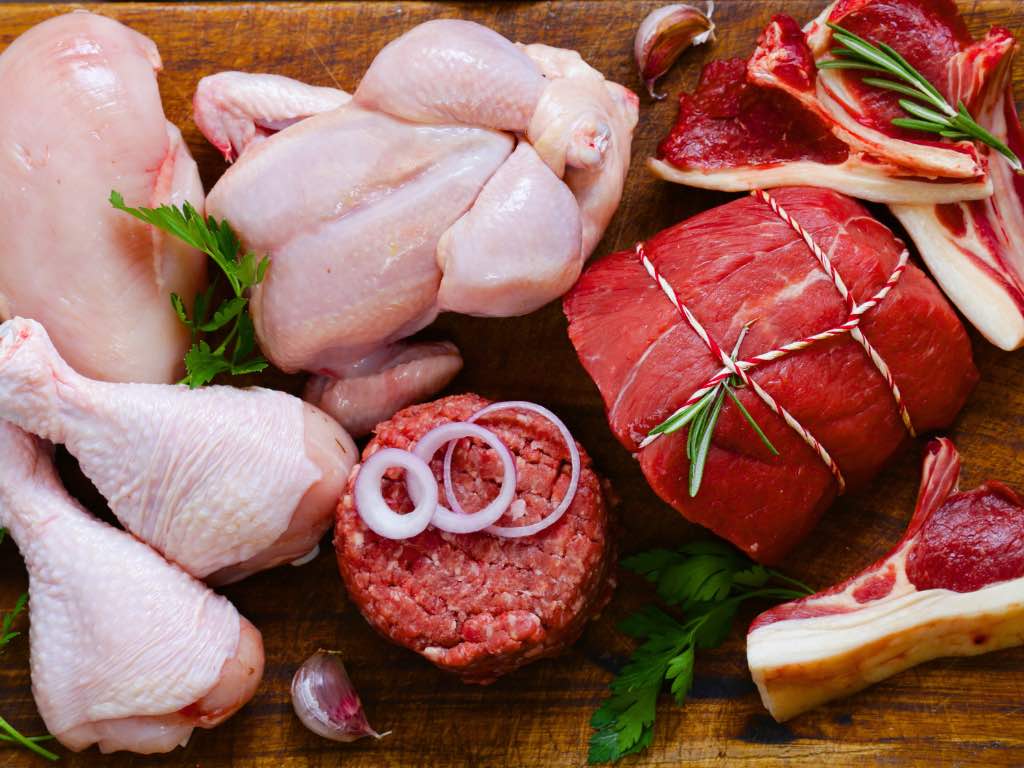
Understanding Halal Meat: What You Need to Know
|
|
Time to read 3 min
Welcome to One Stop Halal!
Written by: Abdul Karim Raja
|
|
Time to read 3 min
Halal meat is becoming increasingly popular among consumers worldwide due to its health benefits and adherence to Islamic dietary laws. However, many are still unaware of halal meat and how it differs from non-halal meat.
You probably heard about halal meat if you are a Muslim or have Muslim friends. Halal is an Arabic word that means "permissible" and is used to describe food and drink that is permissible under Islamic law. In the context of meat, halal refers to how the animal is slaughtered and processed. This blog will discuss the basics of halal meat, its importance to Muslims, and how it differs from non-halal meat.
Halal meat comes from an animal slaughtered according to Islamic law, which requires the animal to be alive and healthy at the time of slaughter. The animal must also be slaughtered by a Muslim using a sharp knife, and the animal must be facing the direction of Mecca.
The act of slaughtering the animal is called "zabiha" and is done by cutting the animal's throat with a single stroke while reciting the name of Allah. This is meant to minimize the animal's suffering and ensure the meat is as fresh as possible. The blood is then drained from the animal, and the meat is cleaned and prepared for consumption.
Halal meat is not only limited to beef and lamb but also extends to poultry, such as chicken, turkey, and duck.
The main difference between halal and non-halal meat is how the animal is slaughtered. Halal meat comes from an animal slaughtered according to Islamic law. In contrast, non-halal meat may come from an animal that has been killed in any way, including stunning or electrocution.
In addition to how the animal is slaughtered, there are other differences between halal and non-halal meat. For example, halal meat is often prepared and processed differently than non-halal meat and may be certified by a halal certification body to ensure that it meets certain standards.
Halal meat is also subject to certain dietary restrictions. Muslims are not allowed to eat pork or consume any meat that has come into contact with pork. They are also not allowed to eat meat from animals that have been slaughtered in the name of anything other than Allah.
Halal meat is produced through a process that adheres to Islamic dietary laws. The animal must be alive and healthy at the time of slaughter, and a sharp knife must be used to sever its jugular vein, carotid artery, and windpipe. The animal must also be blessed by reciting the name of Allah before the slaughter.
After the slaughter, the meat is drained of blood and allowed to cool before it is processed and packaged for distribution.
Halal meat offers several advantages, including:
If you are looking for halal meat, there are several ways to find it. One option is to look for a halal-certified butcher or meat supplier like us. Many cities have halal meat markets or shops that specialize in selling halal meat.
Another option is to look for restaurants or fast food chains that serve halal meat. In recent years, many fast food chains and restaurants have started to offer halal options to cater to Muslim customers.
We carry custom cuts of beef, chicken, lamb, goat, grass-fed beef, wagyu, and much more that are hard to find at your nearby butcher store.
Halal meat is becoming increasingly popular among consumers worldwide due to its health benefits, ethical production methods, and adherence to Islamic dietary laws. Understanding what halal meat is and how it differs from non-halal meat is essential for consumers seeking to consume it and for businesses that want to cater to the halal market. Companies can tap into the lucrative halal market by producing and offering halal meat and gain a competitive edge.

© 2026 One Stop Halal, Inc.